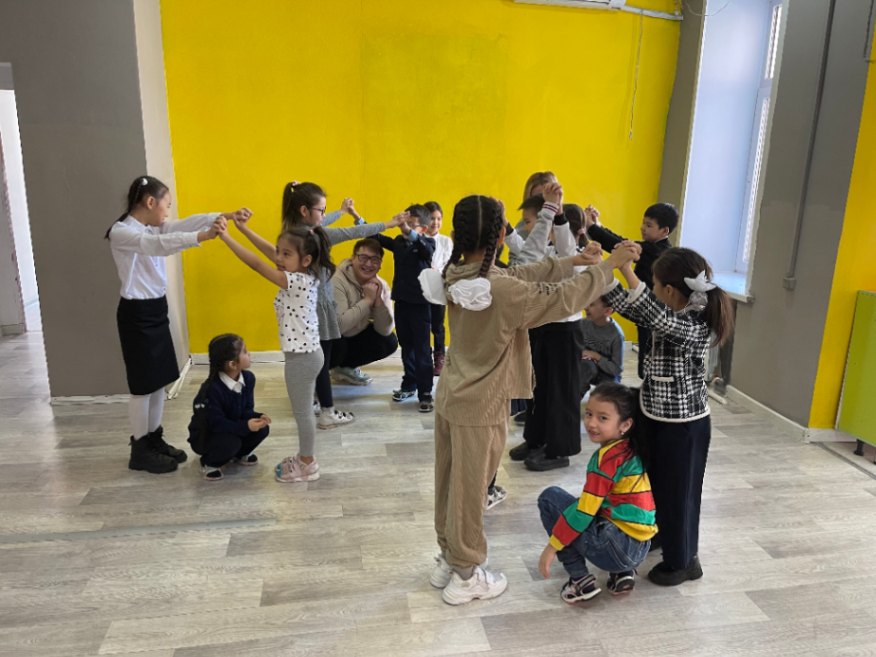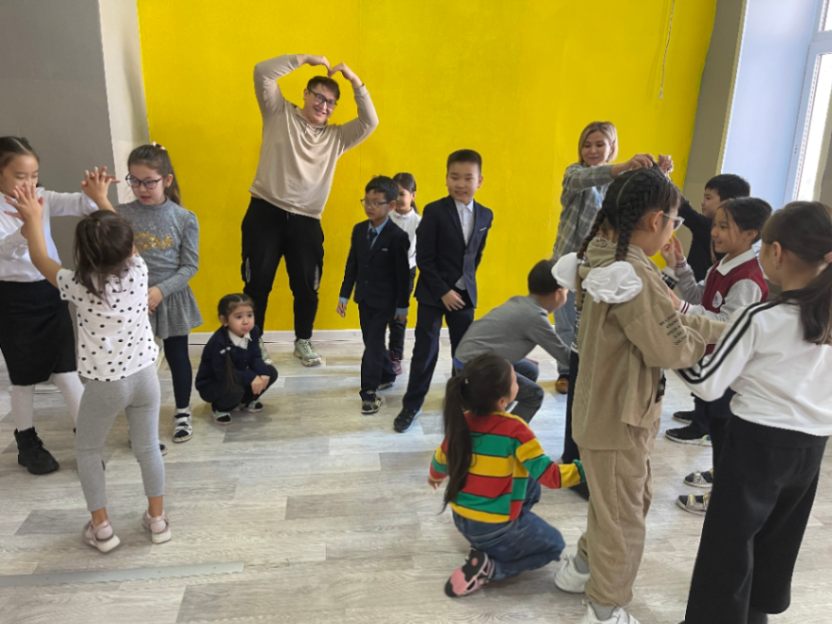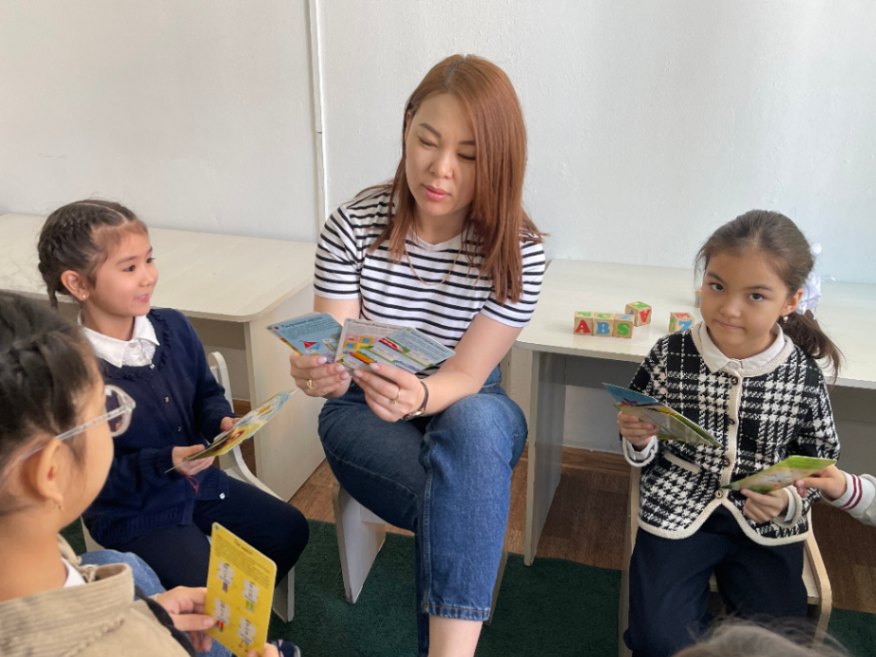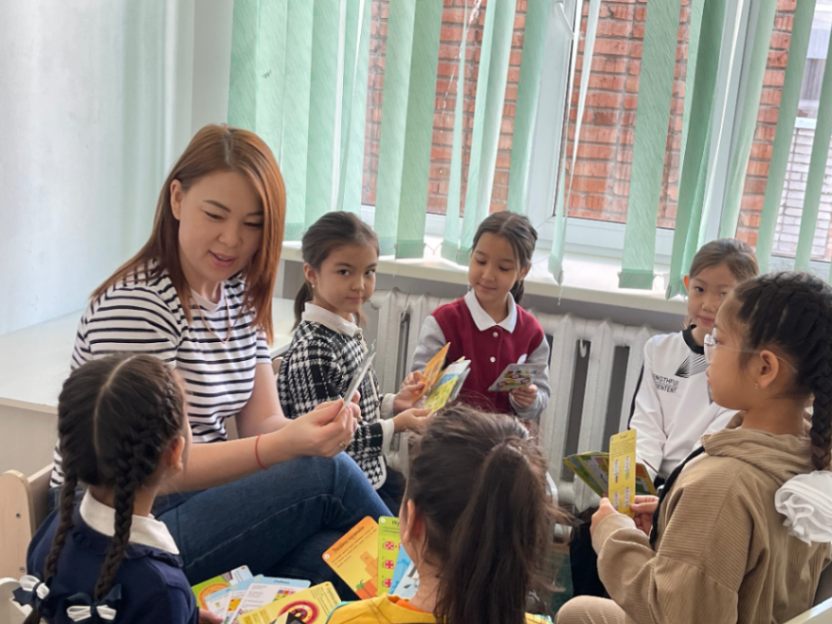Workshop for Children of «DaVinci Center»
On February 21, 2023, the graduate student of the EP “Psychology” Temirlan Zheksen, together with KAFU psychologist Elizaveta Katanova, used “Game Therapy in the Correction of the Preschoolers’ Mental and Social Development” at the DaVinci center as part of a workshop for children.
The social development lies in the modernization of the education system, which affects the structure, content, technologies of education and training at all levels of the educational system, including preschool education.
The introduction of the standard of preschool education contributed to the allocation of new requirements for the content, forms, methods of working with children, outlined the main areas of work with them: physical, social and communicative development, cognitive development, speech development and artistic and aesthetic development.
One of the most important areas is cognitive development. It involves the development of children’s interests, curiosity and cognitive motivation, the formation of cognitive actions, consciousness, primary ideas about oneself, other people, objects, properties and relations of objects of the world around.
The content of each area of work with children can be implemented in various activities: communication, cognitive research activities, play. Depending on the didactic goals, the following types of environmentally oriented activities are distinguished: cognitive, aimed at shaping the experience of acquiring scientific information (analysis of factual material; observations in nature and the presentation of their results; mastering the methods of research work); practical, aimed at the formation of practical skills (work in nature, protection of natural objects from destruction, preservation of rare and unique natural objects, landscape care, improvement of the natural environment), value-oriented, aimed at gaining experience in value orientations and value judgments.
The algorithm for performing activities includes: assessment of the situation; forecasting (determining what the situation should become); programming (what needs to be done for this); planning (how to do); implementation (implementation of planned actions); control and correction (comparison of the results achieved with the “model” and, if necessary, the introduction of any changes).
One of the forms of organization of environmentally-oriented activities of preschool children is game training.
Department of Pedagogy and Psychology



